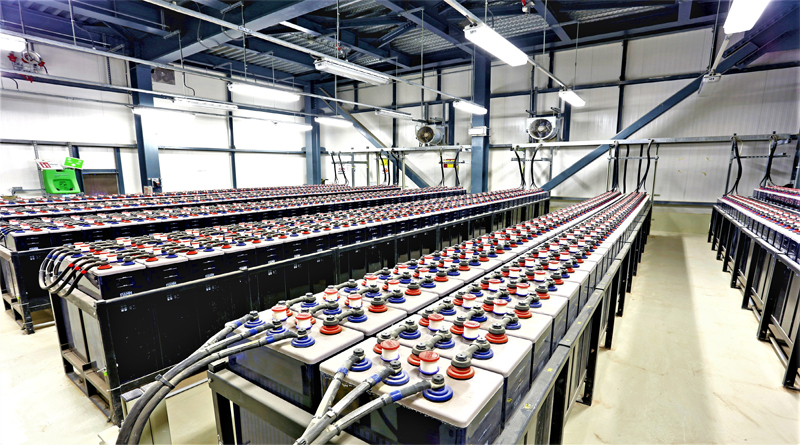

In order to tackle one of the biggest issues impacting the renewable energy sector in India, the Minister of state for Power Raj Kumar Singh apprised the Lok Sabha that a draft of National energy storage mission (NESM) has been proposed.
Keeping pace with the changing scenario in domestic and international energy markets, India is working to formulate the NESM. In February 2018, a committee with representatives from relevant ministries, industry associations, research institutions and experts, was constituted by the MNRE to propose a draft for setting up NESM in India.
“The committee has proposed a draft NESM with the objective to strive for leadership in energy storage sector by creating an enabling policy and regulatory framework that encourages manufacturing, deployment, innovation and further cost reduction,” Singh said.
Earlier, a joint report by NITI Aayog and the Rocky Mountain Institute on India’s Energy Storage Mission had proposed a three-stage solution approach: creating an environment for battery manufacturing growth, scaling supply chain strategies and scaling battery cell manufacturing.
Key areas for energy storage application include integrating renewable energy with distribution and transmission grids, setting rural micro-grids with diversified loads or standalone systems and developing the storage component of electric mobility plans.
Energy storage is one of the most crucial and critical components missing in India’s energy infrastructure strategy and is a must to sustain India’s transformation from non-renewables to renewables.
According to a study conducted by Niti Aayog and the Rocky Mountain Institute, India could account for more than one-third of the global market for electric vehicle (EV) batteries by 2030, if it becomes a 100-percent EV nation. A direct corollary of being the world’s third largest market for autos currently. That, of course, is probably the wrong approach, and unsustainable, considering the sheer amount of resources required to move to EV’s at that scale. The government seems to recognise it and has increasingly dropped strong indications of changing track to a push for electrification of its public transport on priority, rather than incentivising private transport beyond a point. India’s renewable energy sector needs a strong backbone in the form of a robust energy storage industry to sustain its growth trajectory.
1. The mandate for blending Compressed Biogas (CBG) with natural gas has come into effect…
Andhra Pradesh is striving towards greening its energy sector with quite some speed. In a…
With an objective to bolster India’s green energy goals, a Tripartite Agreement has been signed…
The Union MNRE Minister Pralhad Joshi launched the Green Hydrogen Certification Scheme of India (GHCI)…
India’s energy conglomerate Bharat Petroleum Corporation Limited (BPCL) has commissioned a 5MW green hydrogen plant…
In a historical development, the European Space Agency (ESA) has successfully launched its pioneering ‘Biomass’…